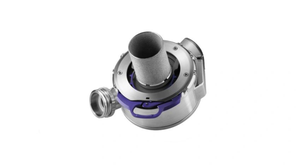FDA issued a recall notice regarding certain sleep apnea devices Philips reworked as part of the initial 2021 recall.
April 11, 2023
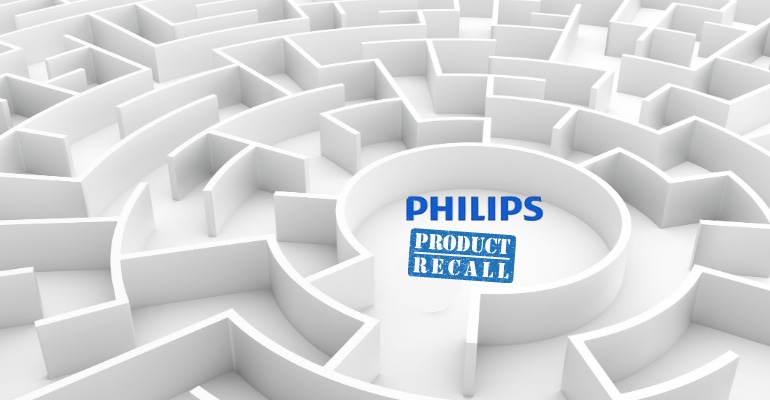
If you've been following the Philips recall on certain respiratory devices, you might be wondering at this point if the recall will ever end. The answer to that question remains unclear, but the latest FDA notice suggests that the product recall impacting the market for CPAP and BiPAP ventilators and other respiratory devices is far from over.
FDA issued a notice late last week deeming a recent recall on some of the machines Philips has reworked as part of the initial 2021 recall to be a class I product recall, the most serious type.
The latest Philips recall impacts DreamStation devices designed to help people with breathing conditions keep breathing at a regular rhythm. They are used both in hospitals and healthcare settings as well as by people in their homes. The DreamStation can provide both continuous positive airway pressure (CPAP) and bilevel positive airway pressure (BiPAP) support.
A CPAP machine keeps your airway open by providing a stream of air at a continuous pressure through a mask. CPAP machines are often prescribed to people with obstructive sleep apnea to keep their airways open during sleep, FDA noted.
A BiPAP machine pumps air under varying pressure into the airway of the lungs. BiPAP machines use a higher pressure when you breathe in and lower pressure when you breathe out. These devices are also prescribed to people with obstructive sleep apnea to keep their airways open during sleep, the agency said.
Amsterdam, Netherlands-based Philips is recalling some of the DreamStations the company has already reworked as part of the massive recall announced in June 2021. According to FDA, some of these reworked devices were assigned incorrect or duplicate serial numbers during initial programming. This duplication can cause therapy to be delivered using the wrong prescription or factory default settings. Additionally, it may fail to deliver any therapy at all. There is no warning or indication to the user that the DreamStation is not working the way the doctor intended or prescribed, FDA said.
Incorrect therapy or therapy failure may lead several health conditions such as respiratory failure, heart failure, serious injury, and death. Philips has received 43 complaints about this issue. There are currently no reported injuries or deaths from the reworked devices, however the initial Philips recall has been liked to 260 reported deaths.
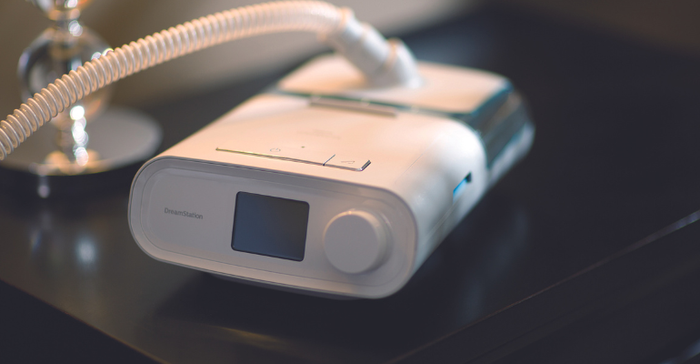
In February, Philips sent affected customers and patients a notice with recommendations on next steps.
How to identify products affected by the Philips Recall
First, locate the serial number of the device and verify it against the serial numbers noted in the letter.
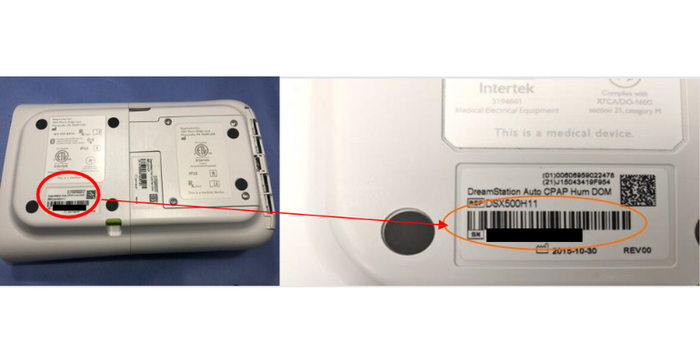
What to do if you are a patient impacted by the Philips recall
FDA said patients (or their care givers) impacted by the latest Philips recall should continue to use the current device until a replacement device is received or until pressure changes are made by your healthcare provider on the current device. Patients are also encouraged to contact their healthcare provider to ask about getting a manual reset of pressure either remotely or in person.
Philips is attempting to contact all users and/or patients by phone to set up pressure changes or replacement and return of affected devices, FDA noted.
How to contact Philips regarding this recall
Healthcare customers may call 1-800-345-6443, prompts 4, then 5, or email [email protected]
Patients and caregivers impacted by this recall may call 1-(877)-387-3311, email [email protected], or get more information online from the Philips recall page for patients
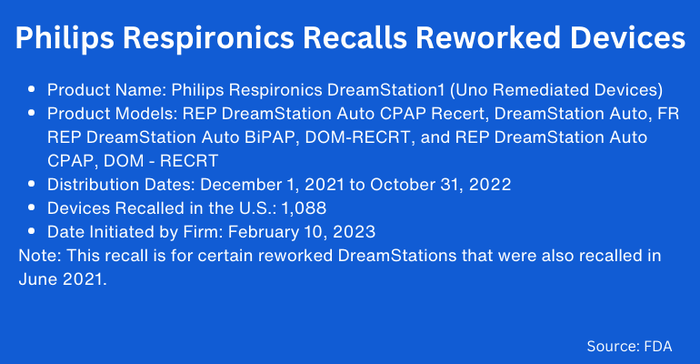
"2022 has been a very difficult year for Philips and our stakeholders, and we are taking firm actions to improve our execution and step-up performance with urgency," said new Philips CEO Roy Jakobs in January. "When I took over as CEO in October 2022, I said that our priorities are first to further strengthen our patient safety and quality management and address the Philips Respironics recall; second, to improve our supply chain reliability to convert our order book to sales and improve performance; and third, to simplify how we work to increase agility and productivity. This is a step-by-step improvement journey supported by our leading market positions, extended customer base, meaningful innovations, ecosystem partnerships, strong brand, and talented employees."
This is the problem with at-home medical devices
Philips' recall also highlights a big problem with at-home medical devices, as noted by ECRI, a Plymouth Meeting, PA-based independent, nonprofit patient safety organization. In its annual report of health technology hazards for the year, the organization warns that recall notices for home-use products often don't reach users. ECRI pointed to the Philips recall as an example of how real this danger is. Although the recall was initiated in June 2021 and affected 5.5 million devices, several months elapsed before some patients became aware of the recall, according to the report. The language in the recall notice also confused patients about whether to continue to use the device and what actions needed to be taken, the report noted.
Philips' loss continues to be ResMed's gain
In the sleep apnea market, San Diego, CA-based ResMed has been working to keep up with the unprecedented demand created by Philips' recall. ResMed's ability to navigate the perfect storm created by this challenge, along with pandemic-related challenges and the global supply chain crisis, has not gone unnoticed. MD+DI editors named ResMed the 2022 Medtech Company of the Year.
"Our financial results reflect solid performance across our entire business, once again driven by strong sales growth in the Americas region as we were able to significantly increase both production and delivery of flow-generated devices," ResMed CEO Mick Farrell said during the company's fiscal second-quarter earnings call in January. "We're seeing ongoing high demand for our sleep and respiratory care devices worldwide and we're making steady progress, working with our suppliers to continue to increase our production to ultimately meet the needs of all customers and especially patients."
Mike Matson, a medtech analyst at Needham & Co., estimates that ResMed captured $70 million to $75 million of incremental sales from Philips in the second quarter, on top of the $45 million to $55 million in captured in the fiscal second quarter of 2022. The analyst noted that this is an improvement from the estimated $20 million to $25 million of incremental sales ResMed captured from Philips in the fiscal first quarter of 2023.
"It's unclear how much longer Philips will be out of the flow generator market; we think that it could reenter the market as soon as 1H23 or its FDA consent decree could keep it out of the market for several more years," Matson wrote in a report issued in late January. "If Philips does reenter the market in CY23, we think that [ResMed's] growth could slow as Philips recaptures some of its former market share."
MD+DI asked ResMed's CEO about that uncertainty in December, and how the company is balancing the need to increase productivity to meet demand while also knowing that Philips will eventually be back on the market competing for those customers again.
"We focus on the needs of therapy users and our customers in over 140 countries. Regardless of when our #2 competitor starts taking care of new patients again, millions of people right now need connected solutions to sleep, breathe, and live better," Farrell told MD+DI. "We’re doing everything we can to procure, develop, and validate as many types and volumes of comms modules as we can to provide more therapy devices as soon as possible."
About the Author(s)
You May Also Like


